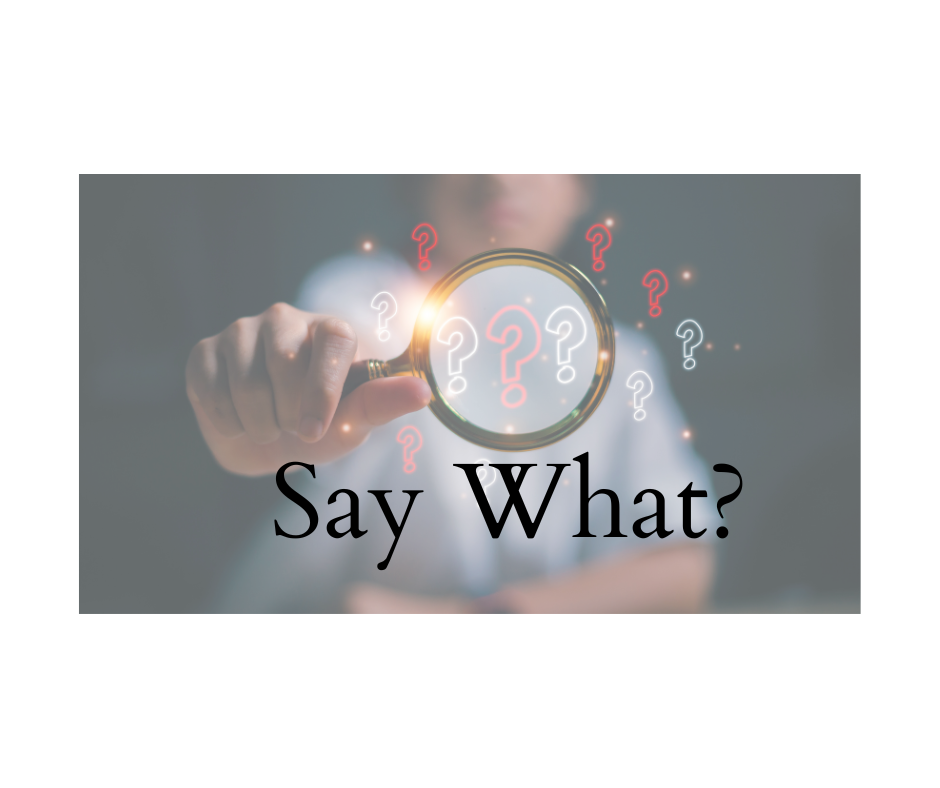Coulda, Woulda, Shoulda
“Coulda, woulda, shoulda” goes the regretful refrain made popular by a song of the same name.
It’s the lament any of us might utter when we realize we’ve made a poor choice or followed a path that didn’t end up where we’d hoped it would.
I hope you also share my regret over the abuse of this phrase—this rendering being an even more egregious error than the one sometimes seen in print: could of, would of, should of. That may be what you hear, but what someone is really saying is have not of.
- I could have taken you to the airport if you would have let me know.
When we’re speaking, we tend to run our words together and form the contraction could’ve. But what we hear is this:
- I could of taken you to the airport if you would of let me know. [Which is wrong!]
What’s so awful about that construction? Could, would, should are members of the verb family. Technically, they are auxiliary or helping verbs. Because they are “assisting” verbs, they always occur in a phrase—which consists of other verbs. In this example, could have taken is a verb phrase. (For the record, of is not a verb, so it cannot be part of a verb phrase.)
People who insist on writing could of (or would of or should of) ought to receive thirty lashes with a wet noodle.








In the hopes of not being beat with a wet noodle, I went into my WIP novel to check … luckily, I didn’t have any of the three possibilities.
Very timely! This common error drives me nuts! Thanks for posting this breakdown of the words.
Funnily enough, I cringed a few months ago when I was putting “should of” into my WIP in someone’s dialog. It fit with the character. I had originally put “should have” and it sounded wrong for him. I just think it’s funny that it was hard for me to change it. I must be a bigger grammar nerd than I thought.
By the way, have you heard “Weird Al” Yankovic’s new song, Word Crimes? It’s something that fits in with this blog. I like the part where he says, “. . . Like ‘I could care less.’ That means you do care. Even just a little . . .”
That was what I was going to ask about. So, it is o.k. to write it like that if it is in dialogue, right? What about a somewhat educated 25 year old during the 80s? I can’t remember how I spoke back then, though I know I was very shy and when younger, was told I talked funny.
It’s tough to know sometimes, which way is best for dialogue.
Isn’t that the truth, thirty lashes with a wet noodle…!? Auxiliary verbs should never be joined with prepositional phrases using of, etc…They do not follow a preposition object/noun in proper sequence. As you mentioned, these contractions are often poorly articulated and lead to general misinterpretation. They conversely sound very different, and in written form fall by the wayside in sentence structure.
What may have initially appealed to the ear in rhyming lyrics, “coulda woulda shouda” was a whimsical metaphor about life for that period, and passed down to the next generation in that process. Paraphrasing it to be more profound in a serious light held little ground to build from.
I may not have a degree in literature, but I have a natural disdain for sentences that shorten the verb – To Have – To Be (and others) – by confusing improper use of their contractions. It’s a fairly common example how language was often altered in lyrical jest and quickly adopted as habitual expressions. These were the slight imperfections considered inconsequential before modern technology applications via text messaging, i.e. texting (not a literal word), advanced the idiotic craze of poor grammar, misspelled words, and short script replacing language for visual graphics.
Popular urban phrases create their own contexts by inferring different word originality. ‘I’m in a funk.’ – ‘That’s dope.’ Slang words are commonly a language peculiar to a particular group – an informal nonstandard vocabulary composed typically of coinages, arbitrarily changed words, and extravagant, forced, or facetious figures of speech.
When I reflect on the history of what language symbolizes in communication throughout the ages, I recognize it to be relevant information about ourselves: A language family is a group of languages related through descent from a common ancestor, called the proto-language of that family. The term ‘family’ reflects the tree model of language origination in historical linguistics, which makes use of a metaphor comparing languages to people in a biological family tree, or in a subsequent modification, to species in a phylogenetic tree of evolutionary taxonomy. No actual biological relationship between speakers is implied by the metaphor.
Estimates of the number of living languages vary from 5,000 to 8,000, depending on the precision of one’s definition of “language”, and in particular how one classifies dialects.
There is so much more to elaborate on in terms of the multitude of languages and their origins, and the defined links in grammar that connect many. To me it is essential to grasp the greater significance behind what that represents, and understand the influence language will continue to have on future generations.
Glad you wrote about one of my pet peeves. Great explanation!